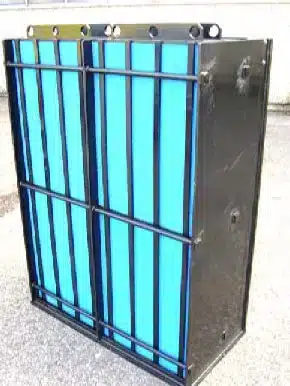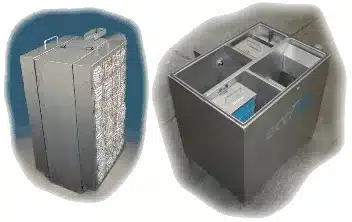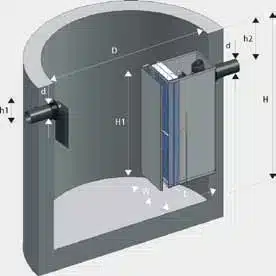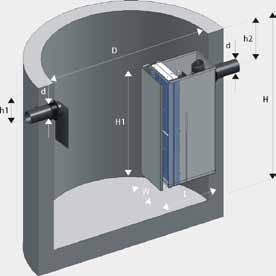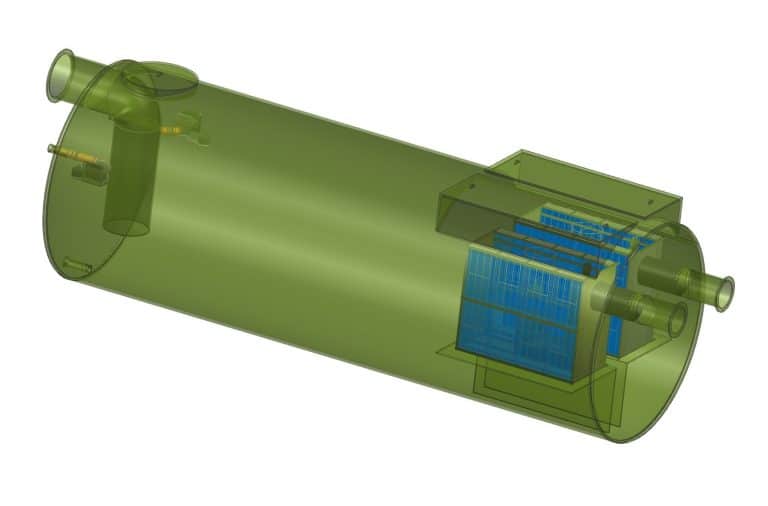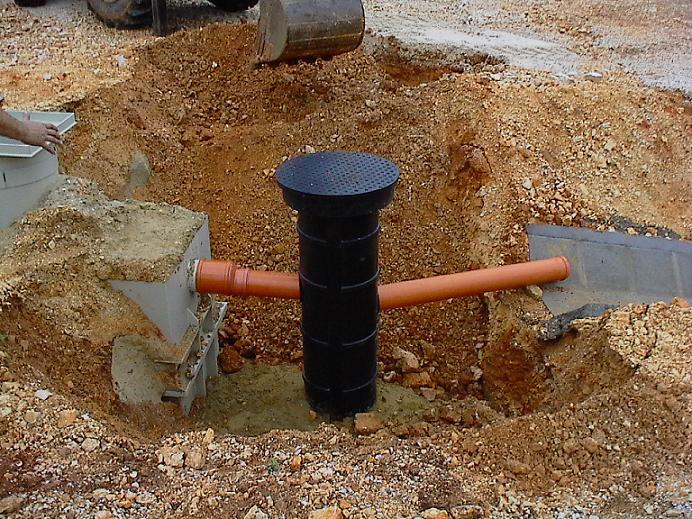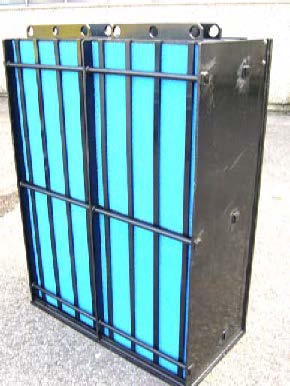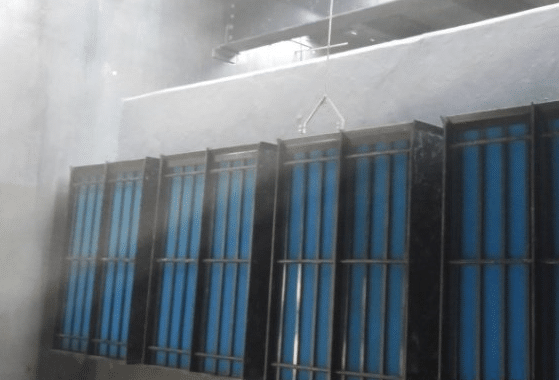In the world of industrial wastewater treatment, Virginia Below Ground OWS (OWS) are leading the way. These systems are changing how companies deal with oily water runoff. But what’s behind their success?
Virginia uses the latest technology and smart mapping to place these systems perfectly. This ensures they work well and safely. Finding the right spot for these systems is key, avoiding mistakes and dangers.
Since 1991, Freytech Inc. has been a top name in wastewater solutions. Their separators remove 99.9% of oil and solids from waste, making them very effective. Big names like General Electric, Halliburton, and ExxonMobil rely on them.
Key Takeaways
- Below ground OWS are changing how Virginia handles wastewater.
- Smart mapping is key for putting in OWS correctly.
- Safe placement of systems is ensured by underground locating.
- Freytech Inc. offers top-notch OWS with a 99.9% removal rate.
- Big companies trust Virginia’s below ground OWS solutions.
Understanding Below Ground Oil Water Separators
Below Ground Oil Water Separators are key to protecting our environment. They keep oil and water apart, stopping pollutants from getting into our water. This is very important for our planet.
Definition and Purpose
These systems are installed underground and work to remove oil and petroleum products from wastewater. They are crucial for industries that deal with oil in their waste. This helps keep our water clean and safe.
Components of Below Ground OWS
Below Ground OWS have several important parts. The inlet lets contaminated water in. Inside, baffles and coalescing media help separate the oil. Clean water then goes out through the outlet, while the oil is kept for removal later.
Some models even use ground penetrating radar for accurate installation and checking.
Advantages Over Above Ground Systems
Below Ground Oil Water Separators have big advantages. They don’t take up much space and fit right into the landscape. They work well all year, not just in certain weather. And they’re safe from damage or vandalism, making them a dependable choice for water treatment.
Virginia Below Ground OWS: Regulatory Compliance
Installing below ground oil water separators (OWS) in Virginia means following strict rules. These rules help manage wastewater and keep the environment safe from pollution.
SPCC Regulations for OWS in Virginia
The Spill Prevention, Control, and Countermeasure (SPCC) rules vary for OWS. OWS just for wastewater treatment don’t need SPCC rules. But, those for secondary containment must follow certain rules and don’t add to the storage limit. Oil production facilities have their own SPCC rules for OWS.
DEQ Requirements for Water Reclamation
The Virginia Department of Environmental Quality (DEQ) manages water reclamation and reuse. It has VPDES and VPA Permit Programs. These programs set rules for industrial users and explain what permits are needed. Contractors use vacuum excavation and potholing to lessen environmental harm during installation.
Permitting Process for Below Ground OWS
Getting permits for below ground OWS is a detailed process. You must submit plans, do cross-bore inspections, and show you follow all rules. The DEQ checks each application to make sure the OWS is safe for the environment and won’t harm groundwater or nearby areas.
Design and Installation Considerations
Designing and installing below ground oil water separators right is key to their success. It begins with subsurface imaging to map out what’s underground. This helps avoid clashes with other utilities and places the separator just right.
Getting the separator’s size right is crucial. It must manage the oil and wastewater it’s meant for, and handle the highest flow rates. Engineers use utility conflict analysis to make sure it doesn’t mess with nearby underground systems.
The materials used in the separator’s construction are very important for its life span. They need to stand up to the chemicals and pressure in the system. Checking the underground infrastructure before and after putting it in is a must to make sure everything connects right and there are no leaks.
In Virginia, the Department of Environmental Quality demands a detailed look at how water projects will affect the environment. This review considers water quality, quantity, and how the separator impacts other water uses in the area.
Following the maker’s guidelines is a must for the separator to work its best. These rules cover design, how to run it, and upkeep. Sticking to these ensures the separator meets all the rules and works well.
Maintenance and Operation of Below Ground OWS
Keeping Virginia Below Ground OWS in good shape is key for top performance. Regular care makes sure these systems work well and follow state rules.
Regular Inspection Protocols
It’s important to check Below Ground Oil Water Separators often. Look for dirt in inlets, outlets, and chambers. Check for corrosion or damage to keep the system strong.
Cleaning and Waste Removal
Clean Below Ground OWS now and then to stop sludge from building up. Remove oil and dirt quickly. It’s crucial to dispose of waste the right way to follow environmental laws.
These separators are crucial in storm water systems. They process runoff to meet the US EPA’s Clean Water Act standards. With effective oily water treatment, facilities protect the environment and dodge big fines.
Performance Monitoring
Keep an eye on how well Virginia Below Ground OWS works. Test the water quality to make sure it’s up to standard. Keep records of how the system is doing for legal reasons.
Make a plan for managing reclaimed water as Virginia’s Department of Environmental Quality says. This plan should have water balance calculations, storage info, and a maintenance plan for the distribution system. Teach users about it and set up steps to prevent bad water connections.
Environmental Benefits of Below Ground OWS
Below ground oil water separators (OWS) are key in saving water and protecting the environment. They make it possible to use water again, easing the load on local water supplies. The Department of Environmental Quality (DEQ) makes sure reclaimed water is used safely for things like watering plants.
Putting in below ground OWS needs careful planning and mapping of underground utilities. This ensures they don’t clash with other pipes or wires. Tools like ground penetrating radar help find where utilities and soil types are, making the setup safer and more precise.
OWS systems take out oil and dirt from wastewater, cutting down on pollution. This keeps local ecosystems and underground water safe. For using water for plants, the DEQ has rules to follow. These rules help avoid too much water and keep soil clean.
Using below ground OWS helps businesses and cities manage water better. These systems meet environmental laws and show a dedication to using resources wisely and preventing pollution.
Freytech Inc.’s Advanced OWS Solutions
Freytech Inc. is a leader in oil water separator technology. Their systems use the latest methods to clean water. This is similar to how vacuum excavation clears soil without causing damage.
Enhanced Coalescing Technology
The company’s OWS units use advanced coalescing technology. This tech removes oil from water with high precision. It’s like how cross-bore inspection finds hidden problems in pipes.
Separation Efficiency and Discharge Standards
Freytech’s separators go beyond North American standards. They clean water to 5 PPM or better, while the standard is 10 PPM. Some units can even get down to 0.1 PPM, catching tiny oil drops.
These systems work on many types of oil, from motor oil to jet fuel.
Custom-Engineered “Green” Solutions
For tough water cleaning jobs, Freytech offers special “green” solutions. They design systems for complex tasks in mining and oil work. It’s like how potholing helps find underground utilities safely.
These eco-friendly options tackle challenging washing and wastewater problems across various fields.

